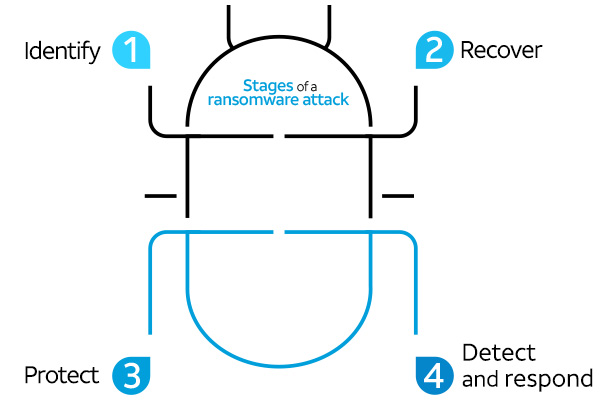What are the benefits of fiber internet to your business
Congratulations! You’ve finally made the commitment. You decided to treat yourself to a snazzy new Porsche 911 Cabriolet—the metallic green one with the Spyder wheels and leather interior. (Not really but stay with me here for a moment.) Where’s the first place you’re going when you take it out for a spin? Safe to say it’s not a dirt road littered with potholes? Of course not. You’re taking it on the open road, a winding, well-maintained highway (along the coast, for sure) so you get the experience of your dreams.
Likewise, if you're transforming your organization to become more agile, you’ll want to give your business data the highway it needs to meet new demands. That highway is business fiber. It’s where internet data travels at lightning-fast speed. And it offers flexible, reliable, and secure connectivity to support your agile, mobile-first business.
What is fiber internet for business?
Traditional types of internet connections like digital subscriber line (DSL) and cable modem transmit data by sending electrical signals along copper wires into your business location. Fiber internet, also known as fiber broadband, or simply “fiber,” is different. It uses light waves to send data along fiber optic lines made of glass fiber into your location.
How fast is business fiber internet?
Fiber has some distinct advantages over copper cable, and speed is definitely one of them. But speed isn’t the only measure. It’s the combination of speed, symmetry, and capacity—that’s where fiber performance really shines.
Speed: Fiber has the potential to transmit data at faster speeds than DSL or cable-based internet. Higher speed means your business can move data faster, processing transactions quickly for example. Fiber’s speed is upgradeable, so you can get the right connectivity and speed for today, then scale it to support more data traffic as your business grows.
Symmetry: Fiber internet also supports symmetrical upload and download speeds up to 20 times faster than traditional cable internet connections. Symmetry occurs when your upload and download speeds are equal. This makes fiber a good choice for businesses that rely on fast access to the cloud.
Capacity: Fiber optic cable can send higher volumes of information over longer distances than copper cable. That’s good for today’s data-hungry devices like in Internet of Things (IoT) sensors. It’s also key to the powerful processing needed for advanced manufacturing processes where low latency is critical.
Together, these performance factors mean:
- Video conferences are crisp, clear, and jitter-free for town hall meetings, product launches, and training sessions whether your teams are around the corner or across the country.
- Large file uploads and download happen quickly and without errors. This is critical for professional services like attorneys who may need to exchange large video deposition files every day.
- You can adopt cloud-based services like voice over internet protocol (VOIP) to unify your voice and collaboration tools.
- Smart office ecosystems that include appliances, speakers, security cameras, and automation devices work better.
- Ultra high-definition streaming experiences are possible across multiple smart TVs all streaming at the same time over the same network. For broadcasters, sports, and entertainment, fiber can be a game-changer.
The reliability of fiber internet
Fiber is highly reliable. Unlike other forms of internet such as DSL which can suffer outages due to inclement weather, fiber cables provide more consistent connectivity. If your business depends on access to cloud resources (as mobile-first businesses do), fiber’s consistent performance makes it a good choice.
Fiber internet is more secure
Reliability also makes fiber more secure. Fiber optic cables are more durable than copper, so there’s less risk for disruption to service. This is good for business continuity.
As you add devices and people to your network you increase the amount of connection endpoints. More connection points add up to more security risk. But fiber is designed to be flexible and manageable. So, it’s easier to add even more security capabilities where you need them. For example, AT&T Business Fiber plans (300M-500M) include AT&T Active Armor delivering 24/7 proactive internet security that helps detect malicious threats from reaching your device.2
More benefits of fiber internet for business
You may be familiar with next generation of networking and capabilities like multi-access edge computing (MEC) and network slicing. They enable you to use your network in new ways. For example, edge computing enables you to distribute computing to the edge of the network where it’s needed. It’s more secure because the data doesn’t need to travel through your network to the cloud or a data center. It’s confined to where the computing happens. This also reduces latency, or lag. For applications like robotics and augmented reality, low latency is crucial.
It’s fiber’s extensibility—that ability to add new capabilities and functions—that enables next-generation programmable networking and helps give you more control. You control where the computing power is, which parts of the network have priority over others, who can access, how much security is needed, and more.
Why do I need business fiber?
If business fiber is the open road, the superhighway for your agile, mobile-first business, where will it take you? Pretty much anywhere you want to go. By adapting evolving technologies supported by fiber internet, you can find new competitive edges—like making your logistics and supply chain work more efficiently so you can better meet customer demands. Sensors can tell you when store stock needs to be replenished, place the order, track it, and let your customers know when it’s on the way.
With fiber, you can deliver rich experiences that enable customers to try before they buy: a pair of glasses, furniture, or kitchen cabinets. It can support your customer journey orchestration so you can use data from your interactions with customer to understand them better and anticipate their needs.
Rich experiences aren’t just for customers. They’re for employees too. What do they need to be successful? Fast, reliable, secure internet. Unified voice and collaboration tools so they can switch between email, messaging, voice, and their calendars without missing a beat and wherever they are. Fiber is just the thing for a unified communications as a service (UCaaS) platform that brings your collaboration tools into a single, cloud-based platform.
Think about the training applications fiber can support. Imagine training mechanics how to service airplane engines using augmented reality. Or a hospital that performs surgery via robotics to keep patients safer. It’s all possible because fiber enables you to add more apps, devices, and more data in the cloud where mobility happens.
What kind of business fiber do I need?
There are different flavors of business fiber internet, as well as different speeds. AT&T Business Fiber is a shared connection while Dedicated Internet is a private connection. Both offer high speeds, reliability, and customer support. But Dedicated Internet has more service commitments for reliability and other performance measures. ADI offers the highest internet speeds available, up to a terabyte per second. Which fiber option is right for you depends on the nature of your business as well as the speed and performance you need.
Fiber internet enables the future of work
In the future of work, agility is key. Many businesses are preparing now, transforming to a mobile-first digital workplace. Mobility-first means your teams can strategize, build, test, and deploy more securely. They can distribute computing power, speed, and access across the network in whatever way makes sense for the task at hand. Teams can come together and collaborate as needed. They use software-as-a-service to be more flexible. They can meet customer expectations for rich on-demand experiences.
To meet the demands of a mobile-first workplace, you need the right tools and applications as well as the right infrastructure to support it. AT&T Business Fiber delivers the internet speed, security, and flexibility you need to meet the demands of the future of work.
Learn more about AT&T Business Internet connectivity solutions or talk to an AT&T Representative today.
1Comparison of Internet 1000 wired upload connection speed to major cable providers 1GIG cable service with uploads of 35Mbps. Telogical Systems 2/2021.
2Available to AT&T Business Fiber customers. Compatible Gateway and Smart Home Manager app required. Security features must be enabled.





Share
Share this with others